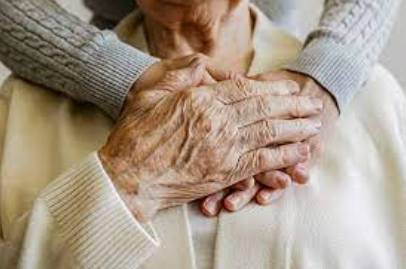Why Ageism in Healthcare is a Growing Concern
by ?
|
I’m sure that you’ve never wondered if doctors even care for your life, or value it in the same way as others. Restless nights deliberating about whether you would be any sort of priority in saving. I’m here to tell you: THEY HAVE.
Looking after the elderly Aren’t you afraid to grow old? Aren’t you afraid of how carelessly we can treat the elderly knowing that we will be them one day? In my life, I always believed that we lived in an equal world, free from the patterns of our history. Yet, we still continue to treat the elderly with disrespect and neglect. They have served us for so many years, so surely, we should return the favour by caring for them as they grow old. However, this is not the case, it is far, far from it. Therefore, today I am writing of a very serious topic which I feel is often overlooked and ignored: Ageist inequality in healthcare. And more importantly, why older people confront more challenges in accessing health related services even though they tend to be more exposed to health risks and experience more health problems. So, why is this happening? Firstly, there are many negative attitudes about older people among healthcare workers. This often results in care rationing, where care is limited or withheld entirely because patients are deemed ‘too old for treatment’. Secondly, due to the larger population and shorter life expectancy of older people, they are often thought of as unworthy of care. This is generally a cause of care workers being more focused on the next generation, and thus view older people as a waste of a patient. Thirdly, there is a lack of enforcement of laws and policies that provide for equality in healthcare An image used to represent the vital need for change. |
Ageism is becoming a growing concern for loved ones. The elderly needhelp now more than ever.
The evidence This overall, results in a reduced quality of care, and exclusion from general care advice. For example, in a 2009 poll of 200 doctors, 72% of respondents said that older people were less likely to be referred for surgery or chemotherapy, and 66% of respondents felt that symptoms were less likely to be investigated. In addition, in a more recent survey in 2020, 63% of older people found it difficult to access healthcare they needed, or did not receive equal treatment. This does not only prove that these situations among older people are ignored but should be used as evidence to question the government as to why they are not doing more. Should we really just forget about the ones that brought us to where we are today? Would we want to be treated with this level of disrespect and lack of conscience when we grow old? Furthermore, the general public and care workers often view mental health as a natural symptom of growing old. Therefore, it is not respected or treated with the same views as our current generation. As a result, older people lack access to treatment to help with these issues and are often looked upon with a discriminatory and stereotypical cloud of judgement. Common health indicators repeatedly exclude older ages, only ranging from 15-49 years of age. Is this an attempt to get rid of our growing population, or are older people just deemed uncapable and naive to the negative attitudes around them? In summary… In my opinion, people should be treated depending on the urgency of the situation. Therefore, older people should be prioritized due to their increasing need for help in their care as they grow old and are unable to fend for themselves. However, my opinion is not the one that matters in this case. I truly hope I have convinced you of how desperately our society needs adapting to the recent laws and changes surrounding healthcare, and how our government needs to understand and realize the gravity of the situation and enforce these laws. It is the ONLY WAY to rediscover the respectable and equal society that we have now lost course on. Living life as an older person is already lonely enough, they shouldn’t be alone with the causes and effects of their illness. |

